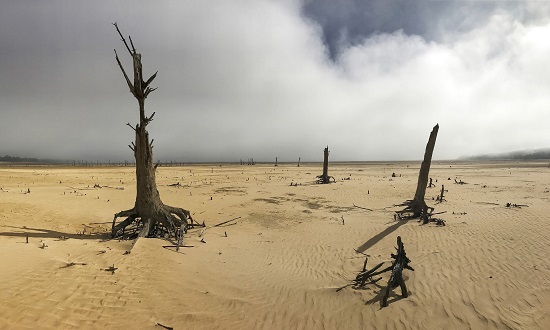
Story of the Week... El Niño/La Niña Update... Toon of the Week... Quote of the Week... Coming Soon on SkS... Poster of the Week... Climate Feedback Reviews... SkS Week in Review... 97 Hours of Consensus...
Freshwater supplies have already seriously declined in 19 global hotspots – from China to the Caspian Sea – due to overuse, groundbreaking study shows

Water shortages are likely to be the key environmental challenge of this century, scientists from Nasa have warned, as new data has revealed a drying-out of swaths of the globe between the tropics and the high latitudes, with 19 hotspots where water depletion has been dramatic.
Areas in northern and eastern India, the Middle East, California and Australia are among the hotspots where overuse of water resources has caused a serious decline in the availability of freshwater that is already causing problems. Without strong action by governments to preserve water the situation in these areas is likely to worsen.
Some of these hotspots were previously undocumented or poorly understood: a region in north-western China, in Xinjiang province, has suffered dramatic declines despite receiving normal amounts of rainfall, owing to groundwater depletion from industry and irrigation.
Water shortages to be key environmental challenge of the century, Nasa warns by Fiona Harvey, Environment, Guardian, May 16, 2018
The La Niña event that overtook the tropical Pacific this past winter is officially over, according to the latest update from NOAA’s Climate Prediction Center. La Niña’s signature of heavier-than-usual rainfall in the western part of the basin has tapered off, and the cool surface waters in the central part of the basin are dissipating.
Adios, La Niña by Rebecca Lindsey, NOAA's Climate.gov, May 11, 2018
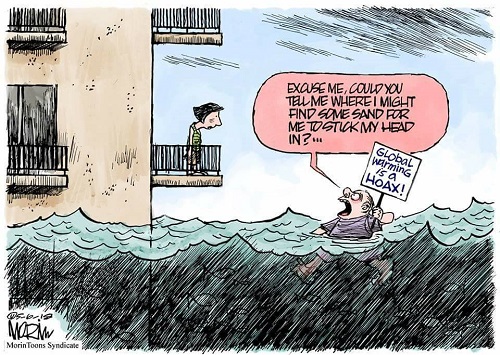
The complexity of climate science may always be at odds with the simplicity that's key to inspiring action.
Remember the hole in the ozone layer? It was more of a thin spot, but in the 1980s, that dramatic term may have helped spur a global movement to reduce certain pollutants staved off disaster.
It's too late to prevent anthropogenic climate change, or unnatural climate change, or global warming — call it what you will. But it isn't too late to slow the warming, and perhaps even reverse it. If only someone could sell the idea.
Inspiring Terms Are Simple. ‘Climate Change’ Isn’t., Opinion by Faye Flam, Bloomberg News, May 11, 2018
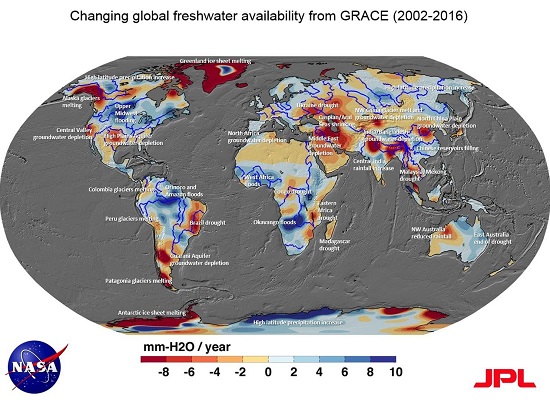

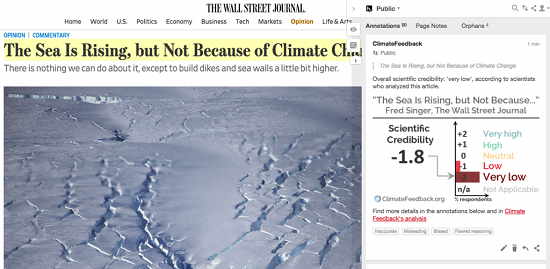
Climate Feedback asked its network of scientists to review the article, The Sea Is Rising, but Not Because of Climate Change, Opinion by Fred Singer, The Wall Street Journal, May 15, 2018.
Five scientists analyzed the article and estimate its overall scientific credibility to be 'very low'.
A majority of reviewers tagged the article as Biased, Flawed reasoning, Inaccurate, and Misleading
Review Summary
This commentary published by The Wall Street Journal, written by Fred Singer, claims that warming (and therefore greenhouse gas emissions) has no effect on global sea level rise. Although Singer concedes the physical fact that water expands as its temperature increases, he claims that this process must be offset by growth of Antarctic ice sheets.
Scientists who reviewed this opinion piece explained that it is contradicted by a wealth of data and research. Singer bases his conclusion entirely on a cherry-picked comparison of sea level rise 1915-1945 and a single study published in 1990, claiming a lack of accelerating sea level rise despite continued warming. But in fact, modern research utilizing all available data clearly indicates that sea level rise has accelerated, and is unambiguously the result of human-caused global warming.
Since the 1990s for example, satellites have measured an acceleration in the rate of global sea level rise:
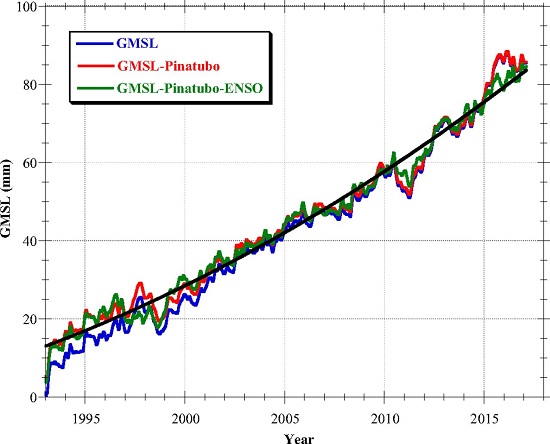
Figure – Global mean sea level (blue), after removing an estimate for the impacts of the eruption of Mount Pinatubo (red), and after also removing the influence of El Niño (green), fit with a quadratic (black). From Nerem et al. (2018)
Wall Street Journal commentary grossly misleads readers about science of sea level rise, Edited by Emmanuel M Vincent, Climate Feedback, May 18, 2018
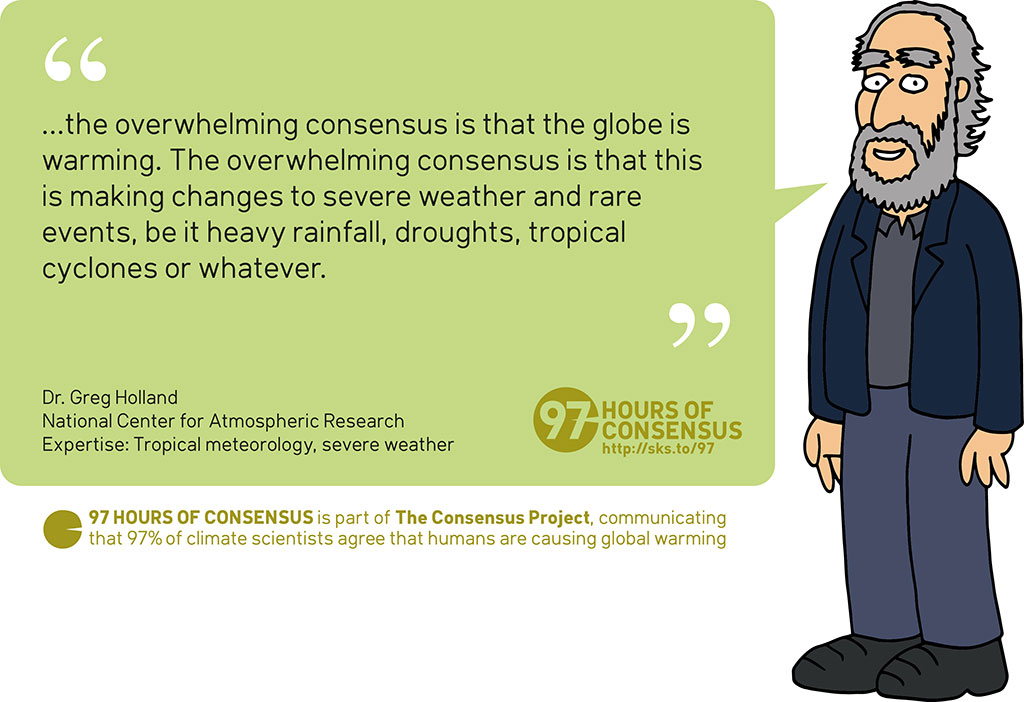
Greg Holland's bio page.
Quote derived from:
"I think we definitely need to actually change our habits so that we can leave our children and our children's children with a better world to live in. But in the meantime, over the rest of my lifetime and indeed the rest of your lifetime and many other people, we are going to have to adapt, we're going to have to accept that it's not gonna be six days per summer of extreme temperatures, it may be 20 days per summer of extreme temperatures and we have to take the appropriate actions to actually live with those conditions.
...the overwhelming consensus is that the globe is warming. The overwhelming consensus is that this is making changes to severe weather and rare events, be it heavy rainfall, droughts, tropical cyclones or whatever."
High resolution JPEG (1024 pixels wide)
Posted by John Hartz on Sunday, 20 May, 2018
 |
The Skeptical Science website by Skeptical Science is licensed under a Creative Commons Attribution 3.0 Unported License. |